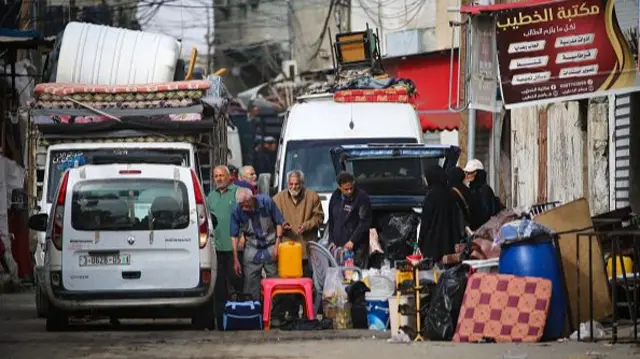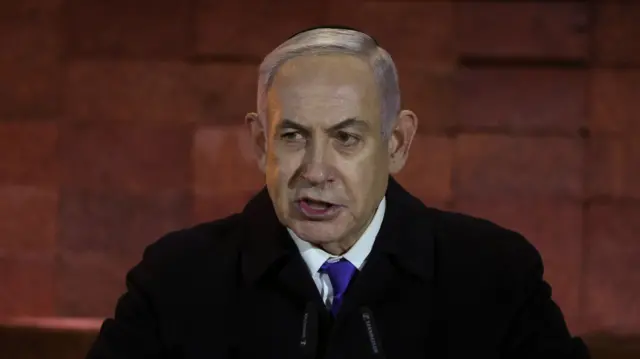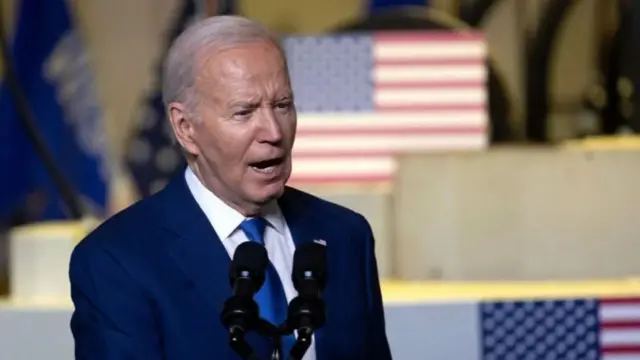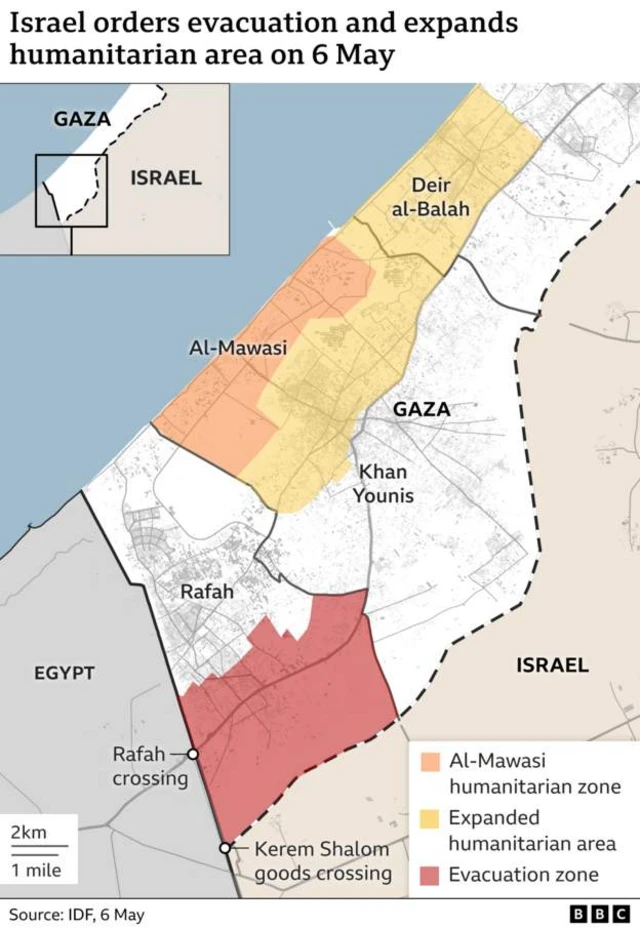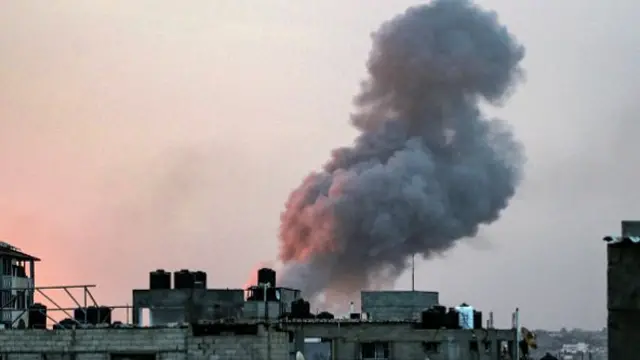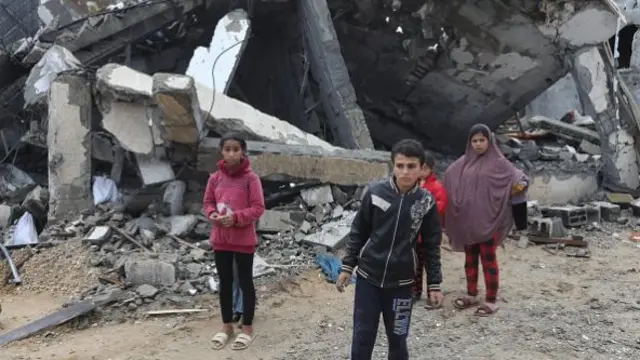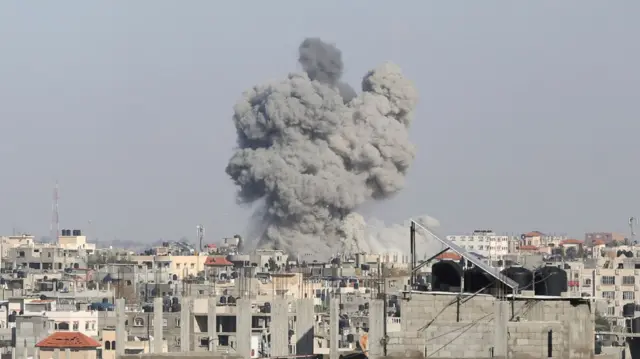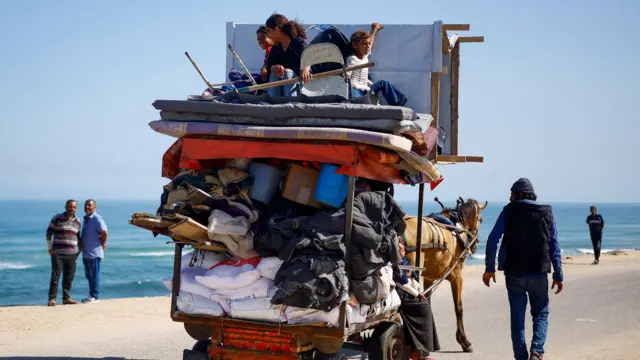Concern over how much aid is reaching Gazapublished at 10:34 BST 11 May 2024
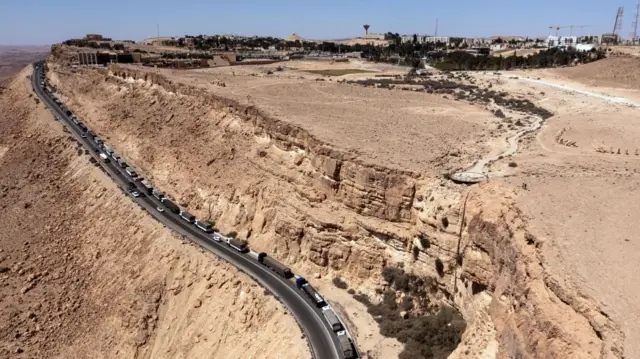 Image source, Reuters
Image source, ReutersA drone view shows a trail of trucks lining up on a road near Mitzpe Ramon, southern Israel, on 9 May
Humanitarian agencies, Israel's allies and other countries have accused Israel of not doing enough to ensure that food gets to those in need in Gaza.
Some have accused Israel of using starvation as a weapon of war.
All aid for Gaza is subject to strict Israeli checks aimed at preventing supplies from reaching Hamas.
But aid groups have said these are complex and arbitrary, causing major delays. Israel has denied impeding deliveries and accuses aid organisations of failing to distribute it.
Most recently, in Rafah, where more than a million displaced Palestinians have been sheltering, the UN has warned that food and fuel is running out.
On Wednesday, the Israeli military announced it had reopened the Kerem Shalom crossing, a key entry point that had been closed for four days because of Hamas rocket fire.
It released a video showing lorries entering the crossing on Thursday, but the UN said the fighting made it impossible for it to pick up the supplies.
